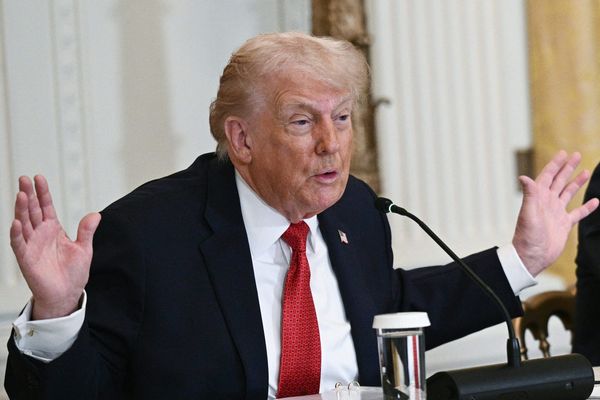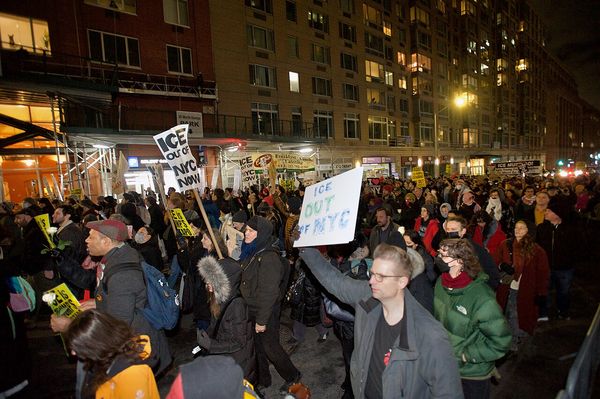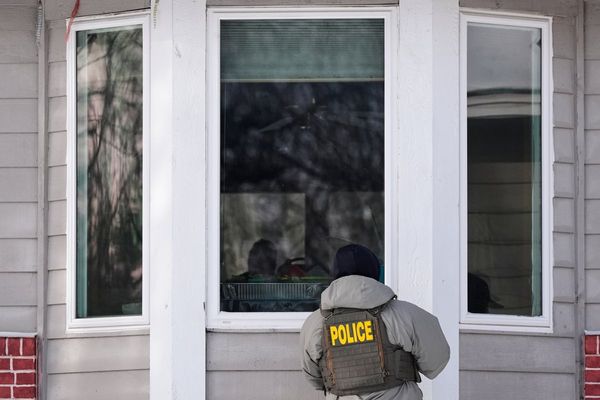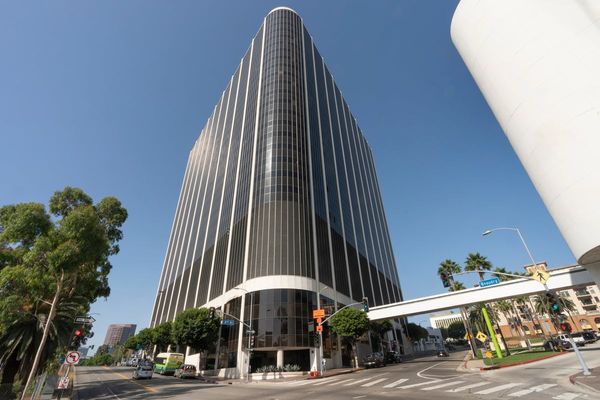
Solomon Islands Prime Minister Manasseh Sogavare will join Australian counterpart Anthony Albanese in Canberra today for a show of statesmanship and an all-round “reset” of the key Pacific relationship.
It follows a similar reset in July at the Pacific Islands Forum in Fiji, where the two leaders met — and hugged — to smooth over an era of fraught relations with former PM Scott Morrison. Tensions came to a head in April during the 2022 election campaign when Sogavare signed a security pact with Beijing.
But Albanese wanted a fresh start. In July, Sogavare gave his word that Australia would remain the Solomon Islands’ “security partner of choice” and assured Albanese that no Chinese military bases would pop up in the nation.
But the smiles were short-lived. In less than three months, bilateral relations have yet again hit the rocks. Sogavare accused Australia of “foreign interference” following the Solomons’ offer to assist with election funding, and continues to take issue with any commentary on the nation’s relationship with China.
It’s now time for another reset. But this time there’ll be neither joint media nor hugs.
“Normally for this sort of event there would be some sort of joint press conference after it. But that tells us we’re not the audience. The audience is inside the beltway on both sides,” China and Pacific expert from ANU’s Department of Pacific Affairs Associate Professor Graeme Smith told Crikey.
“Without the press conference, each side can go away and present the meeting on their own terms.”
But much like the ill-fated phone call between Chinese President Xi Jinping and US counterpart Joe Biden earlier this year, where the US readout was chalk to China’s cheese, Smith says there is a danger for Albanese that Australia’s and the Solomons’ readout (assuming there is one) “don’t look anything like each other”.
Australian and Pacific foreign policy expert from La Trobe University Michael O’Keefe called it “clever stage management” and a strategically sound way to dodge “any difficult questions” that might “disrupt relations”. But on principle, he said it was concerning: “We were very critical when the Chinese foreign minister visited the Solomon Islands and refused a press conference. So for us to follow this line is particularly problematic.”
The lack of transparency is at odds with a statement from Albanese endorsing the “principles of transparency” as building blocks for Australia’s relationship with the Solomon Islands.
“Where’s the transparency?” said Smith. “By using that word, they’ve [the Albanese government] set themselves up for a bit of a fall.”
So what will we see?
According to O’Keefe, Albanese wants to demonstrate that Australia can listen and follow through, while Sogavare is there to show that the Solomons can hold its own and won’t be cornered on China.
“Australia doesn’t want to be seen as the neo-colonial power bullying the Solomons. We want to be seen to be listening,” he said. “Sogavare is demonstrating his inner statesman. He’s trying to show that he can look after his own interests and doesn’t have to pick sides.”
There are of course “two elephants in the room”, which the duo will do their best to avoid (publicly at least). A report this week from the Australian Strategic Policy Institute found China had launched a coordinated disinformation campaign in the Solomon Islands in a largely unsuccessful attempt to influence public opinion. There’s also Australia’s offer of election funding, which Sogavare made a big song and dance about.
“Both of those things won’t be mentioned. This is purely an opportunity to show there is a strong relationship between the two leaders. It’s as much about signalling as anything else,” said O’Keefe.
Conveying these messages to a domestic and international audience without the aid of a press pack raises the stakes considerably for Albanese. O’Keefe says that while Sogavare is “speaking as a statesman” to a Solomon Islands audience and attempting to demonstrate to China he can manage the balancing act, Albanese needs to keep on side an Australian domestic audience “that has become very educated about the Solomon Islands”, a new Parliament, China, the US and the broader Pacific. Plus his biggest stakeholder: Sogavare himself.
It’s anticipated that Albanese will add on the odd aid announceable to help with the latter. But Smith says that Albanese “doesn’t have too much more to offer”.
“You can’t be more involved in a country than intervening to prop up its government. There’s no other level Australia can go to. They’re always talking about ‘strengthening the relationship’ like some bodybuilder getting stronger, but I’m not sure how our relationship can get much stronger. Short of moving in there, we can’t really do too much more.”
This afternoon, prepare for well-behaved performance politics. It will be a tight-lipped affair with more questions than answers. What will be discussed? Whose idea was this? Who reached out to whom?
“We don’t know,” said Smith. “The Australian government is not going to tell us. And the Solomons are certainly not going to tell us.”







